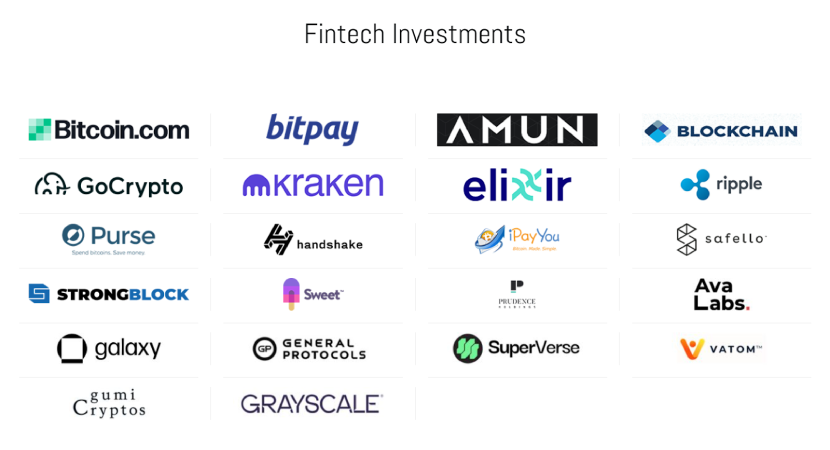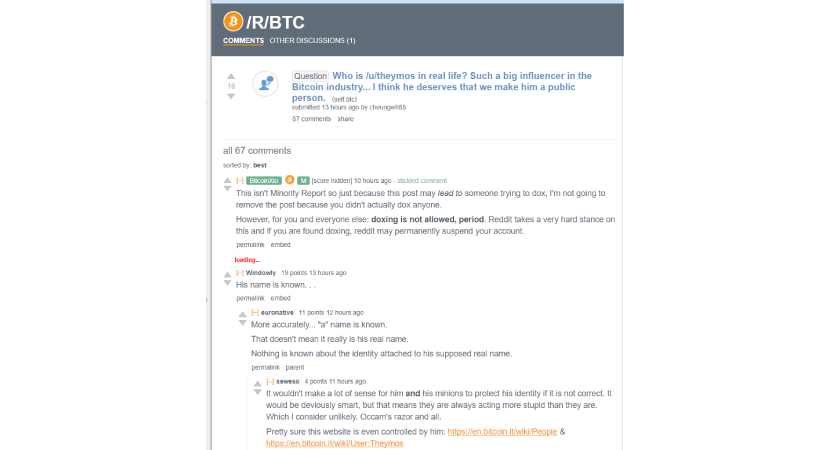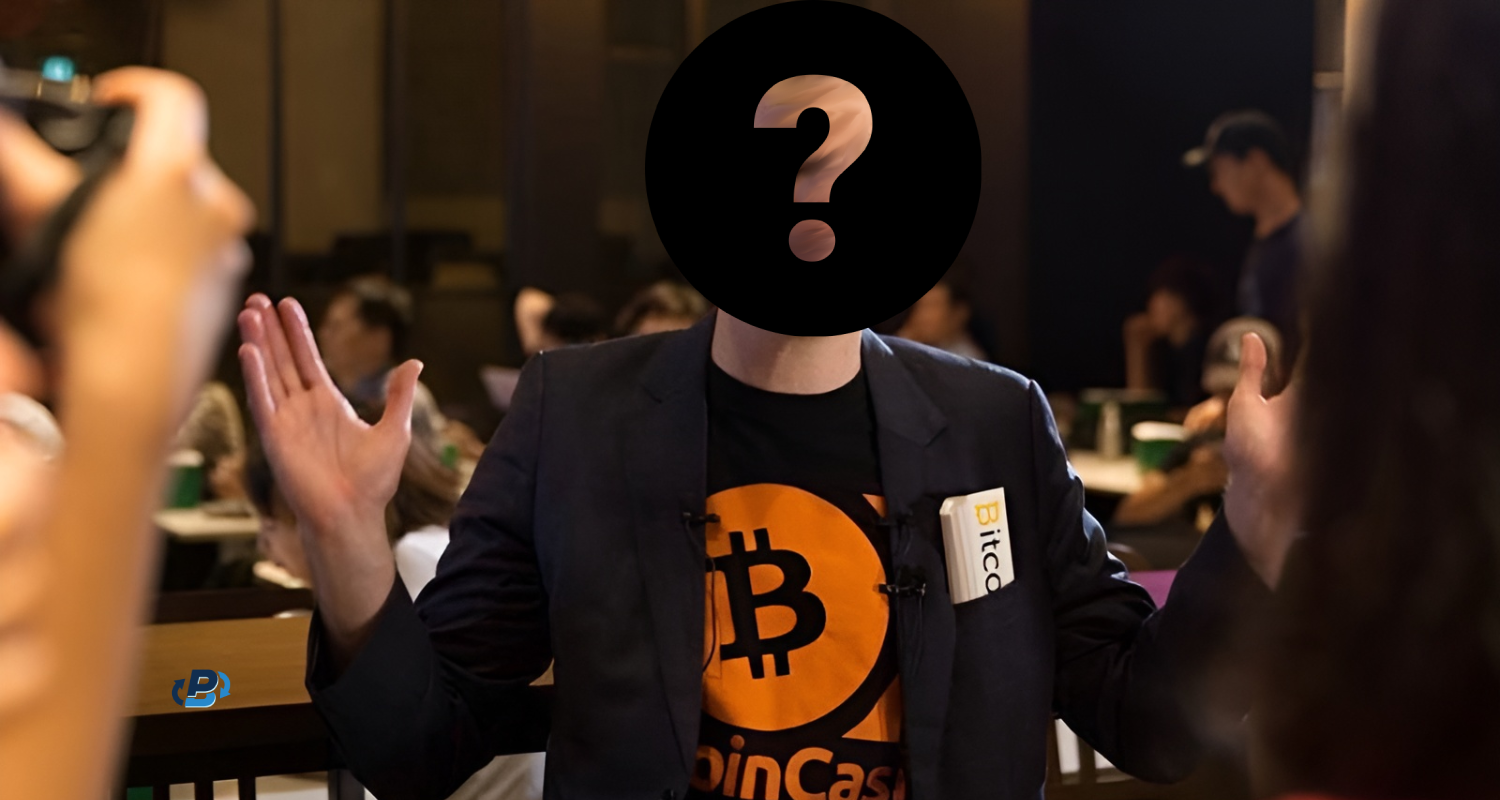From its very beginning, the cryptocurrency industry has been filled with interesting and controversial characters. You may already be familiar with some of them, like Ross Ulbricht, the creator of the infamous Silk Road market that facilitated the buying of illegal goods with crypto, a criminal to some and a victim of the unfair system to others. As you’re about to witness, Ulbricht is far from being the only tech visionary experiencing controversy and run-ins with the law. Whether you see them as heroes or criminals, some people have left an indelible imprint in the world of crypto, including Bitcoin Jesus, a crypto pioneer, investor, and entrepreneur.
So who is Bitcoin Jesus? It’s Roger Ver, an early Bitcoin investor who was indicted by a Federal grand jury on charges of fraud and tax evasion. He was arrested on April 28, 2024, in Spain, released on bail, and moved to the Spanish island of Mallorca, where he now awaits an extradition decision to the U.S. Roger has been a big advocator for Bitcoin since he founded MemoryDealers.com, which became the first business worldwide to accept BTC payments. He renounced his U.S. citizenship in 2014 to become a citizen of Saint Kitts and Nevis, but this landed him in trouble with the IRS (aside from his other legal problems).
Roger is also known for his involvement in multiple Bitcoin related projects, either running or funding them, but later turned his attention to Bitcoin Cash (BCH), which he claims to be better because BTC was “hijacked” by the U.S. intelligence agencies. His different business endeavors include being the CEO and later executive chairman of Bitcoin.com between January 2016 and January 2020, co-founding and running PassportsforBitcoin.com, a consulting firm for acquiring second citizenship using BTC in April 2014, and the Bitcoin Foundation, a nonprofit dedicated to restoring and keeping the good reputation of Bitcoin, which he also co-founded in July 2012 and where he is active as a board advisor presently. He also made large investments in Kraken, Purse.io, Blockchain.com, Bitcoinstore.com, Ripple, BitPay, and BitInstant. At PlasBit, we’re passionate about telling stories about interesting and controversial people like Ver, who have shaped the crypto landscape and have been there almost every step of the way in its development.
How it started
Born on January 27, 1979, Roger Keith Ver, who is Bitcoin Jesus, grew up in San Jose, California, at the heart of Silicon Valley, and attended De Anza College in Cupertino between 1997 and 1999. There, he took classes in economics, math, and astronomy. Per his website, he also studied physics at Stanford University in 1998. His father was a computer engineer, who exposed him to the wonders of the growing tech industry from an early age and influenced Ver’s first steps in his future career. Ver was also increasingly involved in libertarian circles (even running for political office as a libertarian in 2000), advocating for individual freedoms and an open market economy. When he was just 19 years old, he founded MemoryDealers.com, a company specializing in reselling computer parts (mainly Cisco-related memory and networking equipment, transceivers, and accessories). He dropped out of school to run the business, serving as its full-time CEO for over a decade. Shortly afterward, in 2004, he founded Agilestar.com, which also sold computer and networking equipment, and ran it until 2018. Just four years after starting MemoryDealers.com, Ver earned his first million, resigned as its CEO in 2012, and is listed as ending his relationship with it in 2018.
‘Bitcoin Jesus’ discovers Bitcoin
In 2011, Ver learned about Bitcoin, back then still a fairly obscure concept, and became so enamored with it that he referred to it as “one of the most important inventions in the history of humankind.” Notably, Bitcoin aligned with his strong libertarian convictions of freedom and an open market. This same year, he began investing in Bitcoin and declared that his company, MemoryDealers.com, would accept BTC payments from customers, making it the first one globally to do so. Ver himself continued to buy and receive Bitcoin, either through his companies or personally. He also donated quite a bit in Bitcoin, including $1 million worth of BTC to the Foundation for Economic Education, a libertarian think tank. This took place in late 2013, when Bitcoin was trading at the price of $1,150 (in December), soaring from the mere $13.50 it reached in January - a whopping 8,420% increase. He also became involved in a number of projects in the Bitcoin community, be it as an investor or personally starting and/or running them. Among these are Kraken, an exchange where people can trade crypto, and Blockchain.com, a crypto services company that began as the first Bitcoin blockchain explorer, later implemented a wallet, and today operates as a crypto exchange.
Both received seed funds from Ver. Ver, who is Bitcoin Jesus, also invested in purse.io, a platform that used to facilitate Amazon purchases using crypto but was later acquired by a media company that turned into a newsletter. Then there’s Ripple, a blockchain company that created XRP and, like Ver, had trouble with the U.S. law. Long story short, Ripple was charged by the Securities and Exchange Commission (SEC) for illegal sales of securities, which is how the agency referred to XRP. Following a grueling legal battle, the court decided that XRP wasn’t a security when sold to retail investors but was then sold to institutions. Confusing? Yeah, to us at Plasbit, it's a tad as well. Additionally, Ver was an early investor in the now-shuttered crypto exchange service BitInstant, founded by Charlie Shrem, a fellow Bitcoin millionaire who served two years in prison on charges of aiding and abetting unlicensed money transmission connected with the infamous Silk Road marketplace. In 2012, Ver launched Bitcoinstore.com, which offered thousands of items for sale and allowed customers to pay for them in Bitcoin. It was in this same year that he co-founded the Bitcoin Foundation, a nonprofit pushing for Bitcoin’s adoption worldwide and by mainstream businesses.
Two years later, in April 2014, Ver started PassportsforBitcoin.com together with Paul Bilzerian, a former corporate raider who moved to Saint Kitts after his own battles with the U.S. Securities and Exchange Commission and doing time twice for securities fraud and conspiracy to defraud the government of millions. If the last name rings a bell, it’s for a reason. You may be familiar with Paul’s son, Dan Bilzerian. Dan is a popular professional poker player and influencer with millions of followers on social media, where he posts pictures of himself with half-naked ladies, along with this gun collection. As it turns out, it was Bilzerian the elder who processed Ver’s application for citizenship of St. Kitts (but more on that later) and one of the people who had the pleasure of hearing quite a few of Bitcoin Jesus’s sermons. That said, Ver’s perhaps most well-known gig was that in Bitcoin.com, a web portal providing various services for Bitcoin and Bitcoin Cash. He was its manager from 2015 to 2019, at which point he transitioned to become the company’s executive chairman.

Ver’s fintech investments (Image credit: RogerVer.com)
Becoming ‘Bitcoin Cash Jesus’
Around 2017, the multi-millionaire Bitcoin advocate became disillusioned with BTC and abandoned proselytizing it to devote his full attention to Bitcoin Cash. In an interview with CNBC’s Fast Money that same year, Ver said he was “really, really concerned” about Bitcoin’s future. In his words, there was too much speculative interest for the original crypto to remain viable as a currency, and he accused its developers of having ruined its usability as money. As he said, “The fact of the matter is, the utility of Bitcoin has been damaged.” At this point, Ver had joined a small group of crypto developers that spoke out in favor of a hard fork and an increase to the block size limit. In their view, this shift would allow customers to use Bitcoin more while reducing fees and bottlenecks - thus becoming the “money of the future.” On the other hand, the opposing crowd argued that this change would outright endanger Bitcoin’s decentralized nature and have a negative effect on transaction processing procedures. This led to the community splitting into two camps - Big Blockers and Small Blockers - in what came to be called the Bitcoin Blocksize War. The ‘war’ lasted from 2015 to 2017 and ended with the Bitcoin chain hard fork to form Bitcoin Cash with larger blocks in August 2017.
During this debate, Ver had particularly supported Bitcoin Unlimited, a proposed protocol to increase block size limits dynamically. This proposal was challenged by Jimmy Zhong, a.k.a ‘Loaded,’ who made a wager to trade 60,000 Bitcoin Unlimited (BTU) for Ver’s 60,000 BTC, but ultimately nothing came out of it. So, instead of Bitcoin, Ver started to recommend Bitcoin Cash, stating during the CNBC appearance “If you feel like you missed out on Bitcoin back in 2011, take a look at Bitcoin Cash, give it a use. I think you’ll be really, really impressed with the usefulness.” Nowadays, it would be more fitting to refer to Ver as ‘Bitcoin Cash Jesus’ as he advocates more for Bitcoin’s forked version. He has also gone so far as to suggest that the alleged insider trading of Bitcoin Cash on the popular Coinbase exchange was a “non-crime.”
Roger ver(sus) Bitcoin community
In May 2018, Reddit user ‘ayanamirs’ made a lengthy post in the r/Bitcoin subreddit, calling Ver a “well-known scammer” and listing what they believed was evidence to support these accusations. These included claims that moderators on r/btc, which “markets itself as a ‘censorship-free’ sub,” were actually trying to “silence the voices of people it disagrees with.” In fact, the accuser even said they were Ver’s employees and posted screenshots to try and prove it.

Alleged evidence of censorship (Image credit: Imgur.com)
They also accused him of a “doxxing witch-hunt” against Michael Marquardt, a.k.a “theymos,” the main admin of the original Bitcoin forum, Bitcointalk.org. Marquardt was also the head mod of the r/Bitcoin subreddit, the creator of the first Bitcoin explorer, blockexplorer.com, and a supporter of the increase of the Bitcoin block size.

Doxxing of theymos (Image credit: GitHub)
This user also posted a video of Ver from his own YouTube channel, in which he claimed that the Bitcoin exchange Mt.Gox was “fine.” As a reminder, not long after, Mt.Gox collapsed, leaving thousands of people without their life savings. Additionally, they accused him of astroturfing social media “with anti-core, pro-BU propaganda,” vote manipulation, buying Reddit accounts to push his agenda, abusing admin access at Blockchain.info, buying likes on X (then-Twitter), and more lies. In response to the accusations, Ver made a YouTube video, in which he refuted them as “laughable.” For instance, referring to the alleged censorship at r/btc, he denied this and accused r/bitcoin of censorship instead: “The moderator logs on r/btc are completely open, where anybody can see exactly what sort of posts are being deleted or censored or removed there, whereas the moderator logs on r/Bitcoin are closed and you can’t see that. But there’s some other tools where you can and it’s absolutely stunning just how many posts are censored from r/bitcoin.” Addressing his Mt.Gox statement, he said it was made at a time when there were no concerns about Bitcoin withdrawals “because there were no delays, Bitcoins were going in and out just fine at that time,” and that the concerns were only about fiat withdrawal delays. But perhaps the most interesting video in connection with the man who is Bitcoin Jesus (well… was) is the one in which he flipped off Bitcoin enthusiast John Carvalho, a.k.a. BitcoinErrorLog (and, basically, the entire Bitcoin community watching). Here’s the gist of it - the two were going back and forth on issues like Bitcoin Cash, Bitcoin, and accusations against Ver before Ver became annoyed with Carvalho’s comments and rage-quit the conversation after giving him the one-finger salute.

Legal troubles and St. Kitts citizenship
In 2003, Ver was sentenced to 10 months in federal prison after pleading guilty to selling about 14 pounds of explosives without a license on eBay. But according to him, the product, named “Pest Control Report 2000,” was nothing more than a firecracker to scare birds away from cornfields. During a recent interview with Tucker Carlson, Ver said that he believed the reason for this legal action was his criticism of the U.S. government, particularly the actions of the Bureau of Alcohol, Tobacco, Firearms and Explosives (ATF) and the FBI during and after the Waco incident. As a reminder, the Waco siege was a 1993 standoff at a compound belonging to a religious cult of the Branch Davidians, suspected of stockpiling illegal weapons. The ATF was about to raid the compound but was tipped off through a local reporter’s slip and a 51-day battle ensued. On the last day, a fire broke out, bringing the total death toll of the siege to 86 people, including 28 children.
In Ver’s view: “The ATF and FBI literally burnt to death everybody in their home there and then posed for photos on top of the corpses of little kids, and that sort of thing is not okay, and the FBI and ATF are a bunch of murderers for murdering kids. (...) And so in the debate with the Republican and the Democratic candidates, I called the ATF a bunch of murderers that they are for having done that, and boy, did they not like that.” For this reason, Ver said he no longer felt safe in the U.S., so he relocated to Tokyo after finishing probation in 2006. Then, in 2014, he renounced his U.S. citizenship for that of the Caribbean dual-island country of Saint Kitts and Nevis. As per Saint Kitts’s official website, its citizenship-by-investment program allows you to become a citizen if you make a $325,000 real estate investment (resellable after seven years) or a non-refundable $250,000 contribution to the country - no residency or even personal visit required.
At the time when Ver obtained its citizenship, the prices were $250,000 in donations or $400,000 in real estate, resellable after five years. After you receive the Saint Kitts passport, it allows you visa-free travel to over 100 countries in Europe (all EU Schengen countries, including Switzerland, UK, and Ireland) and the Caribbean. But it wasn’t just these perks that made Ver opt to become a citizen of Saint Kitts in particular. According to him, the country is very libertarian: “Saint Kitts’ government is much more libertarian compared with the U.S. It’s not even close. So all these early Bitcoin adopters, of course, if they have the means, they’d rather be a citizen of Saint Kitts.” But the IRS wasn’t convinced. In the words of John Christensen, director of the Tax Justice Network and an expert on tax havens, people typically seek out countries like Saint Kitts for the purpose of evading taxes. As he explained on a phone call with Bloomberg in June 2014 “To be blunt, we talk about places like St. Kitts as places where you go to escape from responsibilities. (...) St. Kitts sells secrecy on the international market and, unsurprisingly, attracts all types of dirty money.” In April 2024, the U.S. Internal Revenue Service (IRS) accused Ver of evading $48 million in taxes, after which he was arrested in Spain.
The accusations originate from his St. Kitts and Nevis citizenship acquisition in 2014 and subsequent renunciation of the U.S. citizenship in the process called expatriation. Under federal law, when a person renounces their U.S. citizenship, their property is considered as having been sold for its fair market value the day before they had done so in a “constructive sale.”Furthermore, any gains arising from the “sale” must be accounted for in that tax year. As it happens, the IRS said that on the day that Ver became a citizen of St. Kitts, he and his two companies - MemoryDealers.com and Agilestar.com, held around 131,000 BTC, which at the time were worth about $871 per wholecoin. Of that, the companies alone allegedly had 73,000 BTC. In other words, his wealth in Bitcoin amounted to over $114 million. Under the U.S. exit tax regulations and tax obligations as a non-U.S. tax resident, Ver was required to report his global assets’ capital gains, including Bitcoin holdings and fair market value. To prepare the tax returns and appraise the value of his companies in relation to his expatriation, Ver hired a law firm and an appraiser. However, the Justice Department argued that he provided them with false or misleading information regarding how much Bitcoin he and his companies owned in reality.
Consequently, his accusers alleged that the law firm prepared and filed tax returns significantly undervaluing the two companies and their BTC holdings and did not report any Bitcoin personally owned by Ver. They also accused him of later taking possession of around 70,000 Bitcoin the companies actually owned and then sold them for about $240 million in 2017, concealing these actions from his accountant. As per the indictment, in doing so, Ver deprived the IRS of a total of $48 million in taxes between 2014 and 2017. According to the U.S. Justice Department, should Ver be convicted of all charges, he would face a statutory maximum sentence of 20 years for each mail fraud count, up to five years for each tax evasion count, and up to three years for each count of subscribing to a false tax return (which would be about 109 years in total). In December 2024, Ver’s legal team filed a motion asking the court to dismiss the IRS’s tax evasion charges against him.
For the time being, the man formerly known as Bitcoin Jesus remains on bail on the Spanish island of Mallorca awaiting an extradition decision from the U.S. Commenting on the indictment in Tucker Carlson’s podcast, Ver opined that it happened because of his “lack of obedience and kissing their ring,” and because he was advocating for stopping the use of fiat money and switching to Bitcoin “I was the first person in the entire world to start investing in the Bitcoin ecosystem and investing in businesses that made it easy for people to use Bitcoin as money and as cash for people all over the world, and I was promoting it since 2011 as ‘hey, stop using the U.S. dollar, stop using Euro, stop using Yen, start using Bitcoin, we have an alternative in which each individual anywhere on the planet can be in charge of their own money completely without needing permission from any politician or any government anywhere in the world.’
And when you’re a government that loves controlling people through the control of the money supply, that’s very, very threatening to their control of the world, so of course they didn’t like that at all.” As the precipitating event, Ver referred to the publication of his book, titled “Hijacking Bitcoin: The Hidden History of BTC,” which he said exposed how “people claiming to work for intelligence agencies hijacked Bitcoin.” Notably, the book came out on April 5, 2024, just weeks before he was arrested in Spain. Some have even connected Ver’s arrest with the shutdown of LocalMonero. This off-ramp to fiat and precious metals, allowing the purchase of Monero (XMR) without ID verification, was closed down in May 2024, with the website citing a “combination of internal and external factors.” One theory is that the U.S. government is trying to create a financial conglomerate with other governments and financial institutions to truly hijack Bitcoin. But first, it needs to funnel as many crypto users into Bitcoin as possible, which can be done by attacking and shutting down its alternatives. Indeed, the timing of Ver’s arrest coincides with the publication of his book in which he heavily criticizes Bitcoin, its custodial wallets, and the fact that its developers have too much control over where it is going.
Conclusion
Roger Ver’s journey from a Silicon Valley businessman to the polarizing figure who is Bitcoin Jesus (although ‘Bitcoin Cash Jesus’ should probably be more fitting today) is much like we love them here at PlasBit - a testament to the memorable personalities and controversies defining the crypto industry. Whether you see him as an almost religious prophet or a provocateur entangled in legal battles and crypto drama, you can be certain of one thing. Ver has left a lasting imprint in the cryptoverse thanks to his advocacy for decentralized technology, investments in pioneering crypto projects, and fiery rhetoric.







